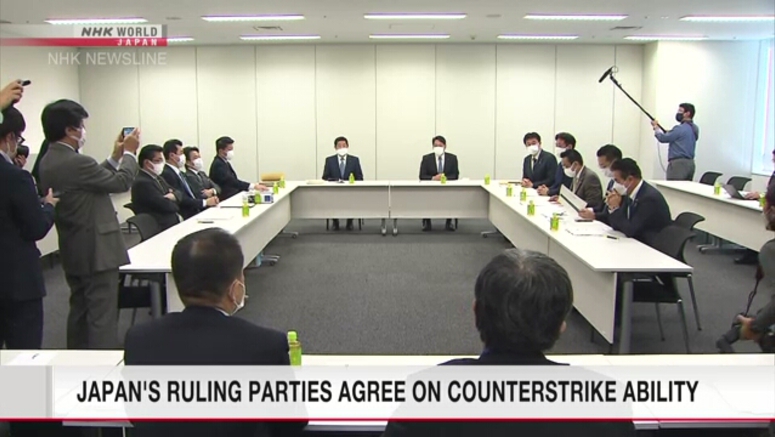Japan's Ruling Parties Agree On Counterstrike Ability

Japan's ruling coalition said the country should be able to launch a "counterstrike" if it's targeted by an armed attack. It's set to be one of the biggest changes to Japanese security policy since the end of World War Two.
The main Liberal Democratic Party and its junior coalition partner Komeito held talks on Friday. They said Japan's current system is poorly equipped to deal with growing threats in the region.
LDP's Kumada Hiromichi said, "Compared with a decade ago, the situation has gotten more dangerous, as North Korea has been launching more ballistic missiles. So we agreed Japan should have counterstrike capabilities to defend itself."
Lawmakers agreed on how Japanese "counterstrikes" would be limited to self-defense and could never be used preemptively. Instead, an armed attack would have to have already been initiated against Japan or its ally, the US. The "counterstrike" could only be directed against military targets with the minimum force necessary to neutralize the threat.
Some experts have raised concerns, asking for more clarity on what constitutes an "initiated attack" on Japan. They also question whether a counterstrike would violate international law.
The government says it's planning to finish revisions of documents outlining its proposal by the end of the year.



















